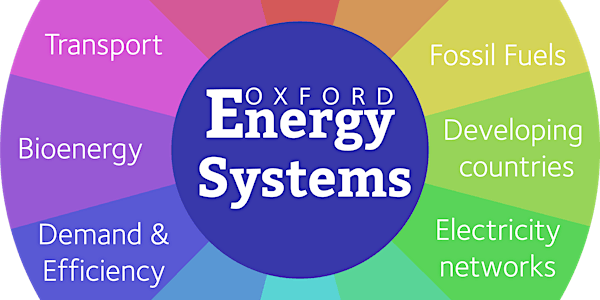
Registrations are closed
A link to Microsoft TEAMS will be sent to you 1 hour before the event. You may be asked to download the TEAMS programme. Please allow sufficient time in advance for this to happen. Follow the prompts, and when you see the link that says 'Reply in TEAMS', click on this. You become a guest of TEAMS for this session. You will then arrive in the waiting room. Please mute your microphone, and wait for the facilitator to admit you to the event.
Energy access in sub-Saharan Africa: Challenges and Opportunities
What is needed to develop sustainable decentralised renewable energy solutions for sub-Saharan Africa.
Date and time
Location
Online
About this event
Over 600 million people in sub-Saharan Africa currently lack reliable and affordable access to energy and the achievement of SDG 7 by 2030 - Universal Access to Energy - seems currently out of reach. Rural electrification in developing countries faces numerous and complex challenges on various levels. As a consequence, most mini- or microgrids (island solutions that are detached from the main electrical grid) face sustainability issues. Studying these systems by applying an interdisciplinary approach that considers the energy systems in the context of the local and national environment and by integrating technical, legal, social and financial perspectives reveals challenges, opportunities and strategic implications on various levels. This lecture will discuss these challenges based on the comprehensive research findings generated by the research projects 'RISE - Renewable, Innovative and Scalable Electrification‘ and ‚Mumuni Singani'. The presentation will discuss major challenges and opportunities for rural electrification in Africa incorporating three perspectives: local communities, the private sector as well as the policy-level and focusses on the question of what is needed to develop sustainable decentralised renewable energy solutions for the region
Speaker: Dr Susann Stritzke is a Research Associate in Renewable Energy (RE) at the School of Geography. Her research is focused on studying the feasibility of electrification strategies in Sub-Saharan Africa on micro- and macro-level with a special focus on off-grid electrification. For her research, Susann is looking specifically at the sustainability of RE off-grid solutions and the development of integrated infrastructure approaches for rural communities. Susann has been working in Zambia during various engagements since 2007 when she gained first hand experience by working with Women Self-Help Groups and by installing small solar PV systems at local schools. Central to her research is a holistic approach that combines technical and financial aspects, energy policies as well as the situation and perceptions of rural communities. During her projects, Susann engages with local policymakers, traditional leaders, rural communities, businesses and local scholars to jointly develop sustainable solutions to enhance clean energy access in Zambia and other African countries. In her current project‚ 'Mumuni Singani‘, Susann aims to develop and implement an integrated infrastructure project that combines clean energy, access to water, sustainable farming and the provision of productive use appliances to directly tackle the complex challenges for rural communities.
The basis for Susann’s interdisciplinary approach are a Masters Degree in Political Science, Psychology and Law from the Technical University Dresden complemented by a PhD on parliaments and constitutional systems in sub-Saharan Africa as well as substantial private sector experience. Beside her research engagement, Susann has been working for over 15 years in various management positions in the Technology and RE sectors. As Chief Group Coordinator for ndl renewables, an energy project development firm based in the UK and Germany, she is directly involved in developing sustainable building and RE generation projects in Germany and South Africa.